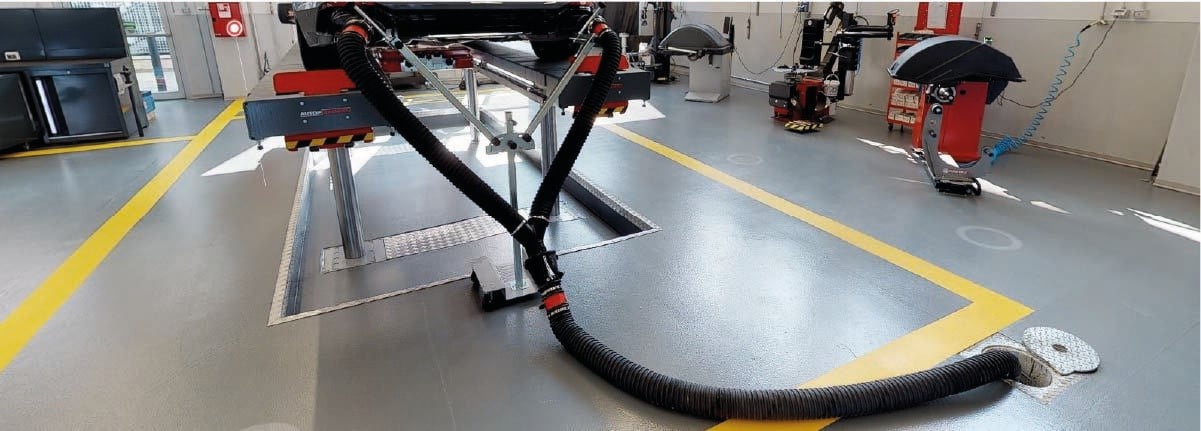 Choosing a modern and functional workshop fume extractor is essential to allow operators to work in a healthy, clean and, consequently, productive environment.
Choosing a modern and functional workshop fume extractor is essential to allow operators to work in a healthy, clean and, consequently, productive environment.
In fact, fume extraction in the workshop is necessary because substances harmful to health can be found among the exhaust gases resulting from engine combustion.
But which system should you choose? It depends on the characteristics of your workshop.
We discuss this in today's article!
Workshop fume extractor: why it is essential in business
Exhaust gases emitted from cars and other motor vehicles contain a number of harmful substances, endangering the health of workshop and body shop workers exposed to the emission. There are mainly three harmful substances:
- carbon monoxide
- unburned hydrocarbons
- nitrogen monoxide
to which small percentages of other particulates are added.
These compounds are so intangible that they escape all attempts at filtration; that is why they must be taken directly from the vehicles' muffler by means of a workshop fume extractor that, once attached to the muffler, extracts the exhaust gas and expels it immediately outside, without dispersing it into the environment.
Choosing the ideal fume extractor is not a decision to be underestimated. The right fume extraction system in fact, improves not only the quality of the working environment, but also the actual workings, and above all, it is easy to use and handy.
Having technological and functional machinery allows technicians to operate in a modern environment, making operations more comfortable and faster. As a result, the number of tasks completed will be higher, resulting in increased workshop earnings and customer satisfaction.
Let's see, then, how to select a workshop fume extractor that improves efficiency.
Choosing smoke extraction system for workshop: factors to consider
Ascertained that a workshop fume extractor is necessary for:
- Safeguard the health of auto repair and body shop technicians
- Maintaining a cleaner work environment
It remains to figure out how to choose the right system for your business.
In fact, there are different types of gas extraction equipment on the market: fixed or sliding, portable or stand-alone, each of them indicated for a specific use. In particular, we can make a distinction between different systems based on two parameters:
- the expected frequency of use
- the number of work areas involved
Frequency of use: underfloor or stand-alone?
Regarding the first parameter, that is, the actual frequency with which you will use a workshop smoke extraction system, we can make two points.
For occasional use, an underfloor implant is suitable. In fact, the underfloor implant is designed to be as unobtrusive and inconspicuous as possible and is extracted only when necessary.
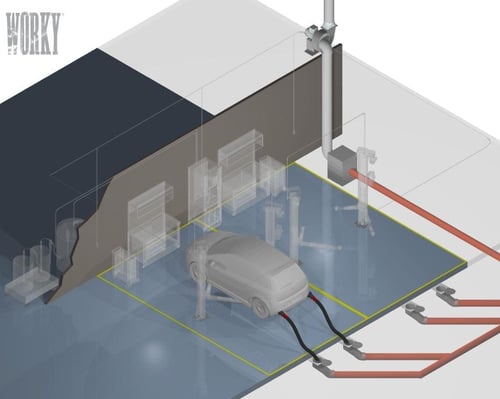
For temporary uses, on the other hand, we recommend stand-alone systems consisting of a fume extraction system that does not require permanent installation, thus suitable for extraordinary or time-limited extraction needs.
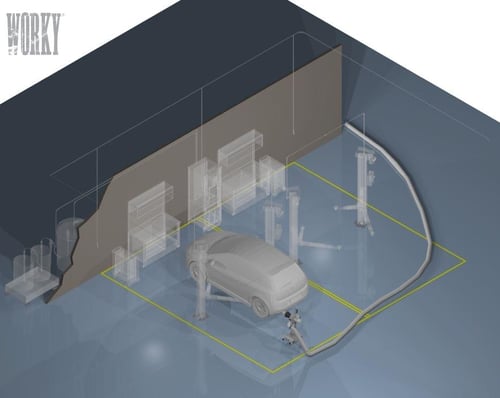
Workshop size: fixed or sliding system?
Instead, depending on the number of workstations in the workshop, and the distance from each other, a choice can be made between a fixed and a sliding workshop fume extractor.
The stationary system is suitable for a small to medium work area with few workstations and concentrated in one area. In fact, the gas extraction system is able to reach areas that are fairly close together.
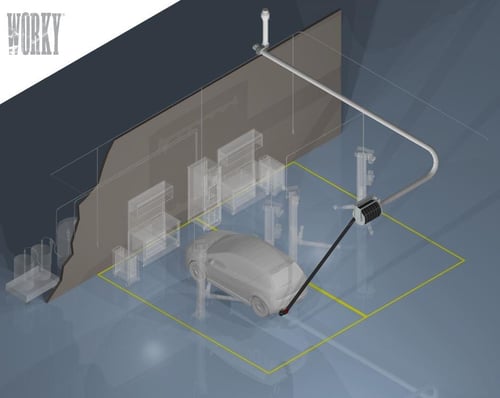 The sliding system, on the other hand, makes it possible to serve even locations that are far apart, thanks to the tracks on which the suction tubes to be attached to vehicle mufflers run. With just a few sliding elements, a very large working area is covered.
The sliding system, on the other hand, makes it possible to serve even locations that are far apart, thanks to the tracks on which the suction tubes to be attached to vehicle mufflers run. With just a few sliding elements, a very large working area is covered.
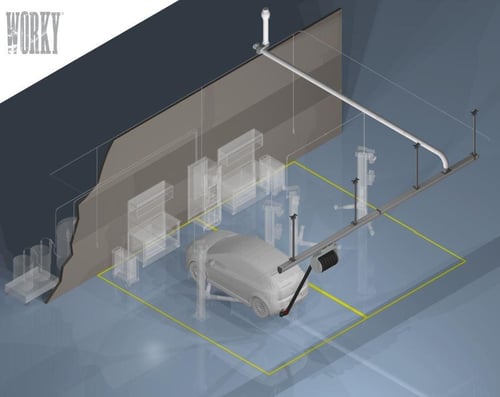
In today's article, we discussed the main factors to consider before proceeding with the purchase of a workshop fume extractor. A reputable supplier will be able to offer customized consulting services so that together we can evaluate the solution that best suits individual needs.
WORKY technicians can develop customized projects, built to the needs of the individual customer, analyzing each reality in depth, and then studying ad hoc solutions.
If you want to learn more, we offer a free session with one of our experts-book it now!



